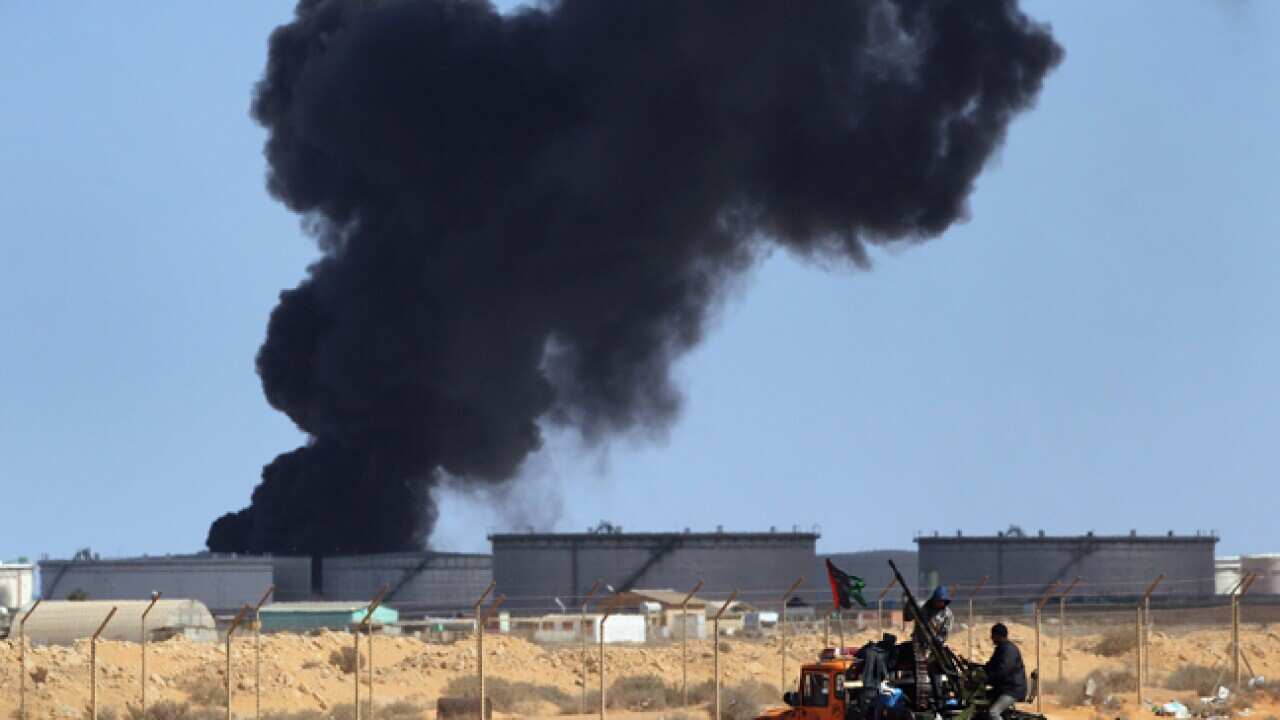US President Barack Obama warned the world is "tightening the noose" on Muammar Gaddafi, but admitted he is "concerned" the Libyan strongman could thwart rebels battling to oust him.
Obama announced Friday he would appoint an envoy to Libyan opposition forces as part of a bid to "change the balance" of the military situation in Libya, and warned the world had an obligation to avoid a Rwanda-style massacre.
The president also defended his efforts to date to oust Gaddafi, amid criticism that he has been too slow or not offered sufficient leadership, adding he was gauging support for a no-fly zone with regional powers.
"Across the board, we are slowly tightening the noose on Gaddafi," Obama said in a White House news conference scheduled to discuss rising energy prices but dominated by the Libyan revolt and the Japanese tsunami tragedy.
"He is more and more isolated internationally both through sanctions as well as an arms embargo," Obama said.
The president also gave an insight into evolving US policy on Gaddafi's crackdown on Libyan opposition forces and his capacity to hang on, edging towards more overt material and political support for opposition forces.
"I am concerned about it. Kadhafi has a stash of weapons, he not only has some troops that remain loyal to him but there are also reports that he's also been hiring mercenaries."
"We're going to have to continue to apply pressure," Obama said, adding that the world had to try to "change the balance" militarily on the ground in Libya as well as in Kadhafi's inner circle.
To that end, the US Treasury Department hit another nine top officials and Kadhafi family members with sanctions, including the defense minister and the Libyan leader's wife Safia Farkash.
Under an earlier set of measures, Washington had frozen $32 billion in Libyan assets.
Obama gave his most comprehensive statement yet on a day when rebels and forces loyal to Muammar Gaddafi battled around the frontline town of Ras Lanuf.
The president did not say specifically whether the United States and its allies had yet considered whether to arm opposition forces as some of ideological opponents in Washington have urged.
"We have determined that it is appropriate for us to assign a representative whose specific job is to interact with the opposition and determine ways that we can further help them," Obama said.
Secretary of State Hillary Clinton will meet Monday in Paris with Mahmoud Jibril, the opposition National Council's foreign affairs chief, former Libyan ambassador Abdel Rahman Shalgam told reporters on Friday.
Washington has already said it would soon send humanitarian aid teams to rebel-held areas of eastern Libya, but warned the move should not be seen as military intervention.
It has also been seeking to learn about the make-up and capacity of Libya's various opposition groups before deciding what kind of support to offer.
Despite US reluctance so far to embark on imposing a no-fly zone over Libya, Obama did hint that international forces could spring into action in the event of any looming civilian massacre.
"Not only the United States but the international community has an obligation to do what we can to prevent a repeat of something like what happened in the Balkans in the '90s, what occurred in Rwanda."
The president said that a desire to stop civilian killings was one reason the West had started continuous aerial surveillance over Libya.
"We're going to have to look at what develops on the ground on a case-by-case basis. I don't want to generalize right now and say that's what's happening and we're prepared to step in.
But retired US general Wesley Clark, a former NATO supreme allied commander in Europe, expressed skepticism about imposing a no-fly zone.
He wrote in The Washington Post that while the American public may want Kadhafi to go, his current actions "aren't an attack on the United States" or any other country.
"On what basis would we seek congressional support and international authorization to intervene in a civil war?" Clark asked "Do we have the endorsement of the Arab League? A UN Security Council resolution?"
European leaders also ramped up pressure on Gaddafi, agreeing to a dialogue with his opponents and to protect Libyan civilians "by all necessary means" but stopping short of issuing an outright military threat.
Obama made clear it was in the national interests of the United States for Kadhafi, a foe of Washington for most of the last 40 years, to be gone.
"I believe that Muammar Gaddafi is on the wrong side of history. I believe that the Libyan people are anxious for freedom and the removal of somebody who has suppressed them for decades now."
He also took time to assess the wider impact of the changes sweeping the Middle East, urging leaders to seize the "great opportunity" presented by the current turmoil to embrace political and economic reforms.
Share

